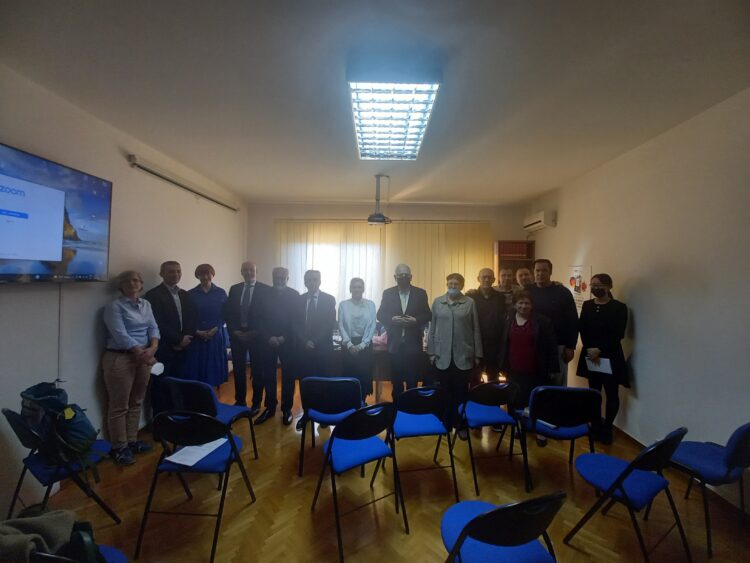On April 15, 2022, at the Institute of Social Sciences in Belgrade, a promotion of the book “Market Economy and Business Culture: Germany and Japan” was held by Dr. Mariana Maksimović, from the Center for Economic Research of the Institute of Social Sciences.
The introductory speech was given by the director of the Institute of Social Sciences, Dr. Goran Basic, who pointed out that the publication is a valuable and interesting read, and that it gives an overview of the economic development of the two countries, which have taken the third path of building economy and society. Then, the head of the Center for Economic Research, Dr. Predrag Jovanović, greeted all those present, emphasizing that in the economic models of these countries, the market does not stifle the initiative of institutions, encourages competition and innovation.
The promotion continued with the presentation of the reviewers. Prof. Dr. Sinisa Zaric pointed out that in Germany and Japan, resources are used for productive purposes. At the same time, business culture is highly respected, which influences the way management and employees communicate with each other. Institutions in these countries are of great importance. Prof. Dr. Branko Rakita emphasized that the most specific way of thinking for Japan is their business philosophy, which leads to a long-term strategy. In this country, many years of thinking leads to effective risk management, so there is a long-term orientation, and this feature is very pronounced in Germany. Prevention and plan exist for the purpose of perceiving problems and solving them. Consensus decision-making is safer and allows for consistency in decisions. Prof. Dr. Miroljub Hadzic said that the comparison is the most difficult to do in economics, and that the author Maksimovic accepted the job. All praise for that, for perseverance and for systematic work. It can be seen from the text that these countries are trying to get as close as possible to their human resources in order to get the best possible business results. Academician Prof. Dr. Wolfgang Rohrbach pointed out the noticeable simplicity and intelligibility of the presentation. According to him, the book is important because it can be helpful to those who want to do business with these countries, they must get acquainted with the regulations and their cultural patterns. All this in order to make the right business decisions, which affect the amount of tax payments, the amount of profit depends, and wrong estimates can bring millions of damages. The next speaker was Mr. Robert Lukić, General Manager of Toyota Serbia, doo and Toyota Adria, who gave an interview for this book. He pointed out two important characteristics of the Japanese philosophy of work and management, and those are collectivism and respect. He pointed out illustratively that the selection process in Japanese companies is significantly different than in companies in Western countries. In the end, Dr. Mariana Maksimović, the author of the scientific monograph, pointed out that these two developed capitalist countries built their economies while respecting cultural specifics, human resources and with the goal of reducing social differences. She made the comparison because of the almost identical year of industrial development, the post-war renewal carried out by the same people in the US administration and the military, as well as the similarities between large companies, online networking, work discipline, social and health care, and small differences in salaries between managers and employees, quality management, as well as for their workforce to be as educated as possible and to have on-the-job training.
In the language of Nobel laureate Douglas North, Germany and Japan have developed their economies and become the world’s leading industrial powers thanks to changes in formal and even more so in informal institutions.

